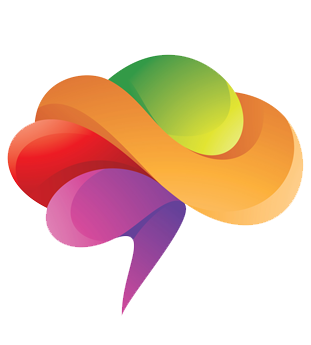Intelligence is a crucial aspect of human life, and IQ testing is one of the most common ways to measure it. IQ tests are used in various fields, including education, employment, and research. The results of IQ tests can provide valuable insights into an individual’s cognitive abilities, strengths, and weaknesses. In this article, we will explore the science of intelligence, the history of IQ testing, the components of intelligence, the role of genetics in intelligence, how IQ tests are designed, the validity and reliability of IQ tests, the interpretation of IQ scores, the implications of IQ testing in education and employment, the impact of intelligence on social mobility and inequality, and the future of IQ testing.
The Science of Intelligence: How Reliable IQ Tests Measure Your Mental Abilities
IQ tests are designed to measure an individual’s cognitive abilities, including reasoning, problem-solving, memory, and spatial perception. There are different types of IQ tests, including the Stanford-Binet Intelligence Scale, the Wechsler Adult Intelligence Scale, and the Kaufman Assessment Battery for Children. These tests consist of various types of questions, such as verbal, mathematical, and spatial reasoning. The reliability and validity of IQ tests have been extensively studied, and they are considered to be reliable measures of intelligence.
The History of IQ Testing: From Binet to Modern Assessments
The history of IQ testing dates back to the early 20th century when Alfred Binet developed the first intelligence test. Since then, IQ tests have evolved significantly, and modern assessments are more comprehensive and accurate. The development of IQ tests has been influenced by various factors, including advances in psychology, changes in educational practices, and societal needs.
What is Intelligence? Defining the Concept and its Components
Intelligence is a complex concept that is difficult to define. It encompasses various cognitive abilities, including problem-solving, reasoning, memory, and creativity. Intelligence can be divided into different components, such as fluid intelligence, crystallized intelligence, and emotional intelligence. IQ tests are designed to measure these components of intelligence.
The Role of Genetics in Intelligence: Nature vs. Nurture Debate
The nature vs. nurture debate has been a topic of discussion in the field of psychology for decades. While genetics plays a significant role in determining intelligence, environmental factors such as education, nutrition, and social experiences can also impact cognitive abilities. It is essential to consider both nature and nurture when studying intelligence.
How IQ Tests are Designed: Understanding the Structure and Content
IQ tests are designed to measure various cognitive abilities, and they consist of different types of questions. Verbal reasoning questions assess an individual’s ability to understand and manipulate language, while mathematical questions measure their ability to solve numerical problems. Spatial reasoning questions assess an individual’s ability to visualize and manipulate objects in space. IQ tests are scored based on the number of correct answers, and the scores are standardized to provide a comparison with the general population.
The Validity and Reliability of IQ Tests: Criticisms and Controversies
IQ tests have been criticized for their cultural bias and lack of sensitivity to individual differences. Some researchers argue that IQ tests are not an accurate measure of intelligence and that they can be influenced by factors such as test anxiety and motivation. However, IQ tests are still widely used in various fields, and efforts are being made to improve their validity and reliability.
IQ Scores and their Interpretation: What Do They Really Mean?
IQ scores are standardized measures of intelligence, and they are interpreted based on the individual’s age and the general population’s performance. IQ scores can range from below average to above average, and they provide valuable insights into an individual’s cognitive abilities. However, it is essential to consider other factors, such as personality traits and environmental factors, when interpreting IQ scores.
IQ Testing and Education: Implications for Learning and Teaching
IQ tests are commonly used in education to identify students who may need additional support or enrichment. However, IQ tests should not be the sole basis for educational decisions, and other factors such as motivation, learning style, and personality should also be considered. IQ tests can also be used to identify learning disabilities and provide appropriate interventions.
IQ Testing and Employment: How Employers Use Intelligence Assessments
IQ tests are used in employment to assess an individual’s cognitive abilities and potential job performance. However, IQ tests should not be the sole basis for hiring decisions, and other factors such as work experience, personality, and motivation should also be considered. IQ tests can also be used to identify job candidates with specific skills, such as problem-solving and analytical thinking.
IQ Testing and Society: The Impact of Intelligence on Social Mobility and Inequality
IQ tests can impact social mobility and contribute to inequality. Individuals with higher IQ scores may have more opportunities for education and employment, while those with lower IQ scores may face barriers to social and economic advancement. However, efforts are being made to address these issues, such as providing equal access to education and employment opportunities.
The Future of IQ Testing: New Developments and Challenges in Measuring Intelligence
New developments in IQ testing, such as computerized adaptive testing and dynamic assessment, are being explored to improve the validity and reliability of IQ tests. However, challenges such as cultural bias and individual differences still need to be addressed. It is essential to continue to improve IQ testing to provide accurate and comprehensive measures of intelligence.
Conclusion
In conclusion, IQ testing is a valuable tool for measuring intelligence and providing insights into an individual’s cognitive abilities. However, IQ tests should not be the sole basis for educational or employment decisions, and other factors such as personality, motivation, and environmental factors should also be considered. Efforts are being made to improve the validity and reliability of IQ tests, and it is essential to continue to explore new developments in IQ testing to provide accurate and comprehensive measures of intelligence.

